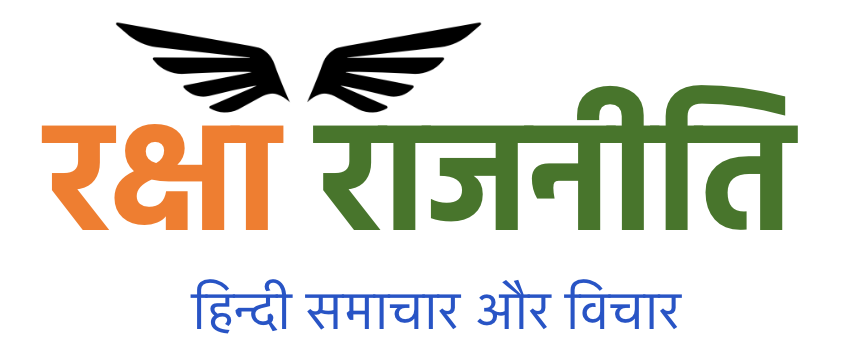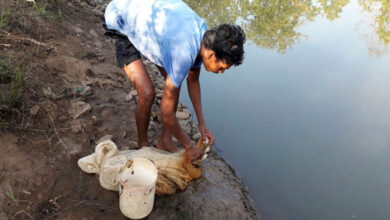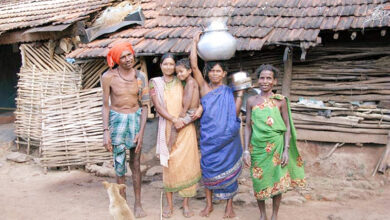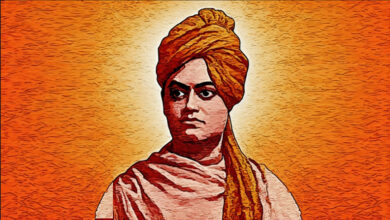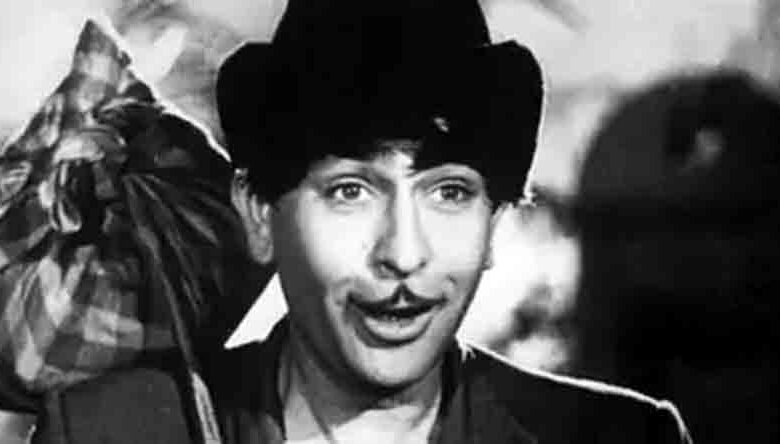
Gopendra Nath Bhatt
Greatest Showman of Indian Cinema Raj Kapoor (1924 – 1988), born as Srishti Nath Kapoor in Peshawar as the eldest son of Prithviraj Kapoor of the Kapoor family, was a producer, actor and filmmaker who left an indelible imprint on the pages of the history of Indian cinema. He has been referred to as The Greatest Showman of Indian Cinema and as the Charlie Chaplain of Indian Cinema.
Born to actor Prithviraj Kapoor and Ramsarni Kapoor, he later took the name Ranbir Raj Kapoor and first appeared on screen as a child actor in ‘Inquilab’ (1935). Later he assisted Kidar Sharma at Bombay Talkies and also worked as an art director at his father’s Prithvi Theatre before starring as Narad in ‘Valmiki’ (1946). It is with ‘Neel Kamal’ (1947) that Kapoor’s acting career took off.
On 12 May 1946, Raj Kapoor married Krishna Malhotra. Krishna was one of nine siblings, and following her marriage, many of them joined the Hindi film industry. Her brothers, Rajendra Nath, Prem Nath and Narendra Nath, later became actors, and her sister Uma is married to actor Prem Chopra.
Raj and Krishna Kapoor had five children three sons, actors Randhir Kapoor (1947–), Rishi Kapoor (1952–2020) and Rajiv Kapoor (1962–2021), and two daughters, Ritu Nanda (1948–2020) and Rima Jain (1955–). Randhir is married to former actress Babita and is the father of actresses Karisna Kapoor and Kareena Kapoor . Rishi’s widow is actress Neetu Singh and their two children are daughter Riddhima Kapoor, and son, actor Ranbir Kapoor. Raj Kapoor’s elder daughter, Ritu Nanda, was married to industrialist Rajan Nand and they had two children: daughter Nitasha Nanda and son, Nikhil Nanda, married to Shweta, daughter of actors Amitabh Bachchan and Jaya Bachchan. Raj Kapoor’s younger daughter, Rima Jain, is married to investment banker Manoj Jain and is the mother of Armaan Jain and Aadar Jain.
Both of Kapoor’s brothers, all three of Kapoor’s sons, two of Kapoor’s daughters-in-law, three of Kapoor’s grandchildren and a great-grandson are all actors in the Hindi film industry. His granddaughters Karishma Kapoor and Kareena Kapoor(daughters of Kapoor’s eldest son Randhir), and grandson Ranbir Kapoor (son of Kapoor’s second son Rishi) are the latest Hindi Cinema superstars from the Kapoor family, while another of his grandsons, Nikhil Nanda (Kapoor’s daughter Ritu’s son), is a noted industrialist. Nikhil’s son, Agastya Nanda, made his acting debut with The Archies in 2023.
Kapoor had a longtime romantic relationship with renowned actress Nargis Dutt during the 1940s and 1950s, despite being a married man, although neither ever publicly admitted to this.The couple starred in several films together, including Awaara and Shree 420.As Raj would not leave his wife and children, Nargis ended their relationship after Chori Chori and married Sunil Dutt with whom she fell in love on the set of Mother India(1957). In 2017, his second son Rishi confirmed his father’s affair in his autobiography Khullam Khulla.
Krishna Raj Kapoor died on 1 October 2018. Rajan Nanda, husband of Ritu Nanda, died on 5 August 2018. In January 2020, Ritu Nanda herself died. She was followed three months later by her younger brother Rishi, Kapoor’s second son, who died in April 2020. Kapoor’s third and youngest son, Rajiv, died in February 2021.
Dilip Kumar,Mukesh,Shailendra,Hasrat Jaipuri,Dec Anand,Pran,Rajendra Kumar,Manna Dey,Shankar Jaikishan, Hrishikesh Mukherjee,Khwaja Ahmad Abbas and Rajesh khanna were among Kapoor’s closest friends from the movie industry.
Raj Kapoor starred in and produced many films for which he received multiple accolades , including three National Film Awards and 11 Filmfare Awards in India. He was inspired by Charlie Chaplin and played characters based on The Tramp in films such as Awaara (1951) and Shree 420 (1955).His performance in Awaara was ranked as one of the “Top-Ten Greatest Performances of All Time in World Cinema” by Time magazine in 2005. His films Awaara (1951) and Boot Polish (1954) competed for the Palme d ‘ Or Prize at the Cannes Film Festival in 1951 and 1955’s editions respectively.
His films were global commercial successes in parts of Asia, the Middle East, the Caribbean, Africa, and the Soviet bloc. The Government of India honoured him with the Padma Bhushan in 1971 for his contributions to the arts India’s highest award in cinema, the Dadasaheb Phalke Award, was bestowed to him in 1988 by the Government of India.
In 1948, Raj Kapoor founded the storied studio R.K. Films which became synonymous with cinematic excellence, producing timeless classics that transcended borders and earned international acclaim. Making his directorial debut with ‘Aag’ (1948), Kapoor’s versatility as an actor found expression in varied roles and he went on to star in and/or direct some of the most popular and critically acclaimed films of his time, including ‘Barsaat’ (1949), ‘Awaara’ (1951), ‘Boot Polish’ (1954), ‘Shree 420’ (1955), ‘Jagte Raho’ (1956), ‘Sangam’ (1964) which was shot in locations as varied as London, Paris, Venice and Switzerland, ‘Mera Naam Joker’ (1970), ‘Bobby’ (1973), ‘Satyam Shivam Sundaram’ (1978), ‘Prem Rog’ (1982) and ‘Ram Teri Ganga Maili’ (1985).
The emotional intensity of ‘Aag’, its technical daring and sensitivity, announced the arrival of an unusual talent and storyteller in Indian cinema. It was also the beginning of the most famous and enduring screen association of Raj Kapoor and Nargis which not only defined an era of romance but also yielded many cinematic gems including indisputably one of Hindi cinema’s greatest love songs ‘Pyaar Hua Iqraar Hua’. Class issues were articulated in K. A. Abbas’ scripts for Raj Kapoor’s productions in the 1950s. Raj Kapoor’s films, notably ‘Awaara’, garnered unprecedented success in the former Soviet Union. To commemorate 100 years of world cinema in 1990, the then Soviet Union honoured Raj Kapoor alongside eminent global film personalities like Ingrid Bergman, Jean Gabin, Charlie Chaplin and Marilyn Monroe. In post-World War II, post-Partition India, when the entire socio-political system was under strain and thousands of migrants were pouring into the cities, millions identified with Raj Kapoor’s dispossessed heroes. The tramp of ‘Awaara’ reappeared in ‘Shree 420’, but with a difference and was rediscovered as a circus clown in ‘Mera Naam Joker’. The vision that Kapoor staged and sang was recognizably Pandit Jawaharlal Nehru’s India, featuring an urbanizing, modernizing milieu and the rural-urban and the class divide, the challenges of the common man and the moral ambivalence of a changing society.
Raj Kapoor’s acting roles were not confined to his own productions. One of the biggest roles of his career was in Mehboob Khan’s Andaz (1949), which also featured Nargis and Kumar. Andaz broke box office records and made superstars of both Kapoor and Kumar. Other notable films starring Kapoor but not produced by him include Anari (1959), Chhalia (1960), and Teesri Kasam (1960).
Raj Kapoor received the Padma Bhushan in 1971 and the Dadasaheb Phalke Award in 1988. Shree 420 won a National Film Award in 1955. Awaara and Boot Polish competed for the Grand Prize at the Cannes Film Festival in 1953 and 1955, respectively. Jagte Raho won the Crystal Globe at the Karlovy Vary International Film Festival in 1957. Kapoor also won 11 Filmfare Awards in various categories.On May 2, 1988, during a ceremony at which he received the Dadasaheb Phalke Award, Kapoor suffered an acute asthma attack and collapsed. He died one month later.
On the 100th birth anniversary of Raj Kapoor, the greatest actor of Indian cinema, Film Heritage Foundation Mumbai, in association with R.K. Films, National Film Archive of India (NFDC), PVR-INOX and Cinepolis Films is celebrating “Raj Kapoor 100 – Celebrating the Centenary of the Greatest Showman” from 13th to 15th December 2024 in 40 cities and 135 cinemas across the country.
According to Shivendra Singh Dungarpur, Founder Director, Film Heritage Foundation, on this occasion, ten selected films of the legendary producer, director and actor Raj Kapoor are being reviewed on an unprecedented scale. These films have gained immense popularity among Indian and international audiences and include Aag (1948), Barsaat (1949), Awara (1951), Shree 420 (1955), Jagte Raho (1956), Jis Desh Mein Ganga Behti Hai (1960), Sangam (1964), Mera Naam Joker (1970) and Ram Teri Ganga Maili (1985).
The entire Kapoor family recently met Prime Minister Narendra Modi in New Delhi to extend the invitation for the event.
